Pennsylvania Deitsch Lullaby “Sleep, My Baby, Sleep”
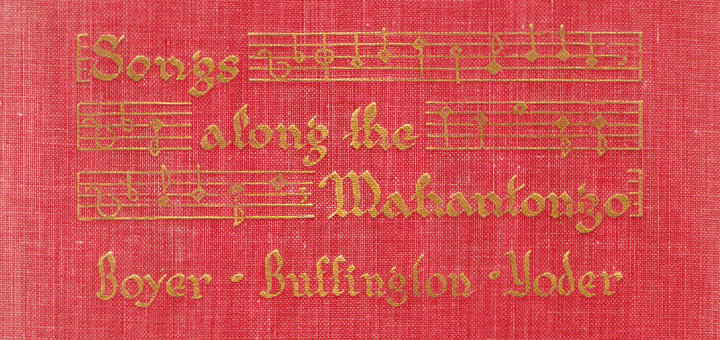
Pennsylvania has long been recognized for its Deitsch people and their distinct culture. Arriving in the Americas in 1737, Andreas Hagenbuch and his family were part of one of the earliest waves of German settlement in Pennsylvania.
Today, Pennsylvania Deitsch customs are typically associated with the Amish and Mennonite groups. However, there once was a time when the culture was significantly more widespread. Letters and documents show that the Hagenbuch family knew and conversed in Deitsch until at least the middle of the 19th century–over 100 years after arriving in Pennsylvania.
During the 1940s, Walter E. Boyer, Albert F. Buffington, and Don Yoder, traveled throughout Pennsylvania’s Mahantongo Valley interviewing Deitsch residents and listening to their songs. These were published in their 1951 book Songs Along the Mahantongo.
Pennsylvania’s Mahantongo Valley lies about 45 miles northeast of the Hagenbuch homestead. Towns in the valley include Rough and Ready, Hepler, and Klingerstown. According to Songs Along the Mahantongo, Mahantongo is pronounced “Ma-han-tong-go” with an accent on the third syllable. Other sources note alternative pronunciations including “Mock-ann-tango” and “Ma-ha-tun-ga.”
Songs Along the Mahantongo is a unique collection of Deitsch folk songs once sung by the people living in the valley. When determining the age of the works, the authors assert that the oldest songs have lyrics written in Pennsylvania Deitsch rather than High German and may date from the 18th century. Knowing this, it is likely that some of these tunes were known, heard, and sung by Pennsylvania’s first Hagenbuchs.
The first song featured in the book is a lullaby titled “Schloof, Bobbeli, Schloof” (English: “Sleep, My Baby, Sleep”). The song, written in Deitsch, contains five verses once sung in the Mahantongo Valley. Below are two performances of the piece, as well as the lyrics. The music for the song can be found at the beginning of this article.
The first rendition is sung by Sara Hagenbuch in Pennsylvania Deitsch using the music and lyrics found in the book Songs Along the Mahantongo.
The second version is sung in Deitsch by Keith Brintzenhoff. Brintzenhoff also plays the Appalachian dulcimer, an instrument which is descended from the German scheitholt.
Schloof, Bobbeli, Schloof (Deitsch)
Schloof, Bobbeli, schloof!
Der Daadi hiet die Schoof.
Die Mammi hiet die braune Kieh
Und kummt net heem bis Marriye frieh.
Schloof, Bobbeli, schloof!
Schloof, Bobbeli, schloof!
Der Daadi hiet die Schoof.
Die Mammi hiet die Lemmer,
Noo schlooft des Bobbel noch lenger.
Schloof, Bobbeli, schloof!
Schloof, Bobbeli, schloof!
Der Daadi hiet die Schoof.
Die Mammi die kocht Schnitz un Gnebb;
Der Daadi hiet die Keffer weg.
Schloof, Bobbeli, schloof!
Schloof, Bobbeli, schloof!
Der Daadi hiet die Schoof.
Die Mammi iss fatt uff die Blauderyacht
Un sie kummt net heem bis dunkel Nacht.
Schloof, Bobbeli, schloof!
Schloof, Bobbeli, schloof!
Der Daadi hiet die Schoof.
Die Mammi hiet die weisse Kieh;
Sie schtehne im Dreck bis an die Gnie.
Schloof, Bobbeli, schloof!
Sleep, My Baby, Sleep (English)
Sleep, my baby, sleep!
Your Daddy’s tending the sheep.
Your Mommy’s taken the cows away.
Won’t come home till break of day.
Sleep, my baby, sleep!
Sleep, my baby, sleep!
Your Daddy’s tending the sheep.
Your Mommy’s tending the little ones,
Baby sleep as long as he wants.
Sleep, my baby, sleep!
Sleep, my baby, sleep!
Your Daddy’s tending the sheep.
Your Mommy is cooking Schnitz today,
Daddy’s keeping the bugs away!
Sleep, my baby, sleep!
Sleep, my baby, sleep!
Your Daddy’s tending the sheep.
Your Mommy’s gone off on a gossiping flight,
And won’t be back till late tonight!
Sleep, my baby, sleep!
Sleep, my baby, sleep!
Your Daddy’s tending the sheep.
Your Mommy’s tending the white cows –
They keep a very manury house!
Sleep, my baby, sleep!
Though “Sleep, My Baby, Sleep” is a simple lullaby intended to be sung to a child, it reveals key aspects of Pennsylvania’s heritage. Several verses shed light upon the daily chores on a Deitsch farm such as tending to the sheep and cows. Another mentions cooking “Schnitz un Gnebb” which was a dish made from ham, dried apples, and dumplings.
Folk songs such as this serve as vivid reminders of a not so distant past and provide valuable insights into the lives of Deitsch families like the Hagenbuchs. Future articles will continue to explore the music and lyrics found within the book Songs Along the Mahantongo.

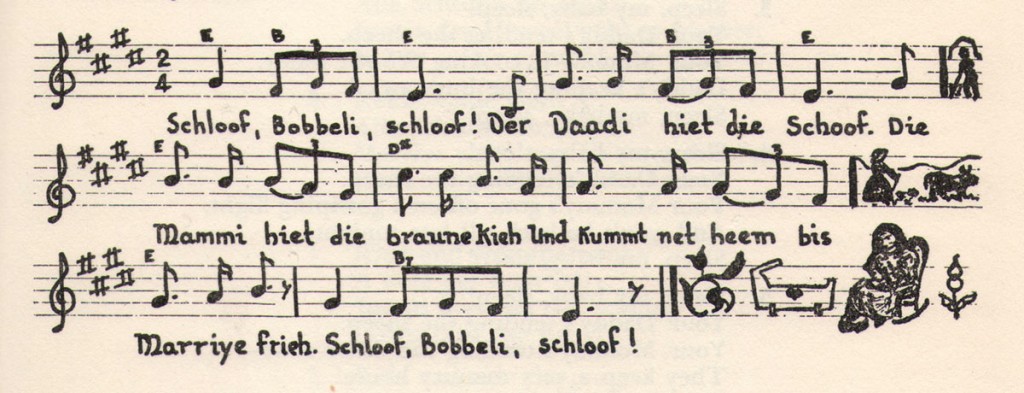
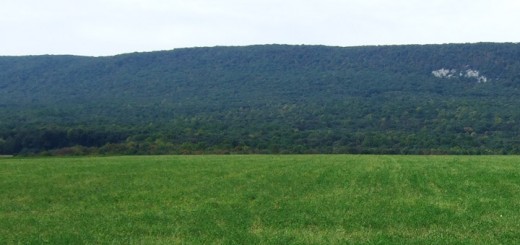
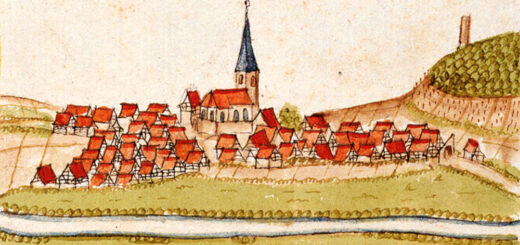










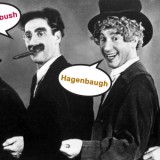
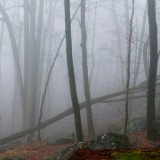

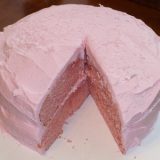
There is an interesting side bar about Albert Buffington, one of the authors of Songs Along the Mahantongo. Historically, the Buffington family were English Quakers who came to Pennsylvania in the late 17th century. The line that Albert is descended through found its way to northern Dauphin County in the Gratz area and became assimilated into the local PA Dutch culture. Pennsylvania Dutch was his first language despite the fact of his Anglo heritage. Albert later became known for his love of the dialect and was noted for his scholarly studies of PA Dutch and his thesis submitted at Harvard in 1937 entitled “A Grammatical and Linguistic Study of Pennsylvania German.”
The lesson being that you don’t have to a have a direct ancestor connection to Germany or Switzerland to be part of the culture. Stories like this of people with non-Germanic names that are pure dialect speakers abound in Pennsylvania, especially in the areas where the Dutch culture was overwhelmingly predominant, such as northern Dauphin County.